Britain told to stand up to Myanmar junta as resistance armies rise up
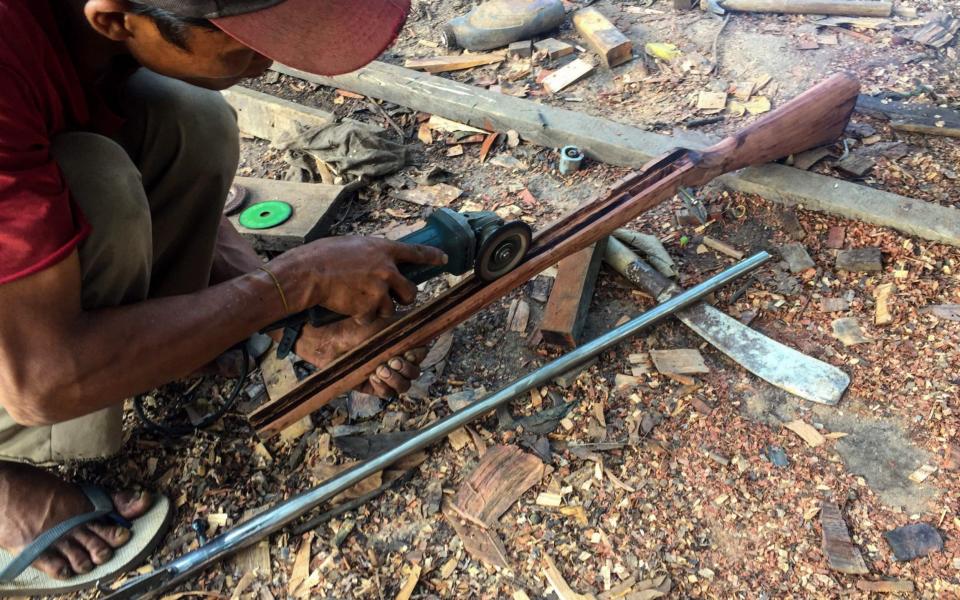
Myanmar’s civilian government-in-exile has called on Boris Johnson to lead the world by formally recognising its right to rule the crisis-torn Southeast Asian nation after a February military coup.
In an interview with the Telegraph, Dr Sasa, the government’s minister for international cooperation, said the UK had a unique responsibility to lead efforts to end the suffering of its former colony after the military ousted a democratically elected government and seized power four months ago.
“We need this formal recognition as the sole legitimate representative of the people of Myanmar. The more they hesitate to do so, we are deeply concerned that this military junta will find a way to normalise the killing,” said the doctor-turned-politician, who goes by Dr Sasa.
Myanmar is on the verge of civil war and economic collapse under a military junta that has waged a brutal crackdown on protesting civilians – killing almost 900, including more than 70 children, and arresting close to 6,000.

Meanwhile, China has been accused of accepting the regime’s legitimacy. After a meeting with junta envoy Wunna Maung Lwin, Beijing referred to him as “Myanmar’s foreign minister”.
Myanmar is also facing a humanitarian disaster. This week, Tom Andrews, the UN special envoy for human rights in Myanmar, warned of “mass deaths” from starvation and disease among some 100,000 displaced by military airstrikes in ethnic minority border regions.
The shadow “National Unity Government” (NUG) was formed in April by ousted parliamentarians, members of ethnic minority groups and figures in the anti-coup protest movement.
But while it has actively engaged with the United Nations and multiple governments including the UK and US, it has only been offered moral rather than formal political support.
Hesitation over recognising the NUG, and formally interacting with the junta also risked legitimising them as the country’s rulers, he warned.
Dr Sasa thanked the UK for already sanctioning the regime, but asked for more help.
“Britain has a historical responsibility to help us restore democracy,” he said. “We are asking Britain to lead on the international stage and bring an alliance together – at least to coordinate with the US, European Union, Australia, Canada and all like-minded countries to provide us with political support.”
The Foreign, Commonwealth and Development Office did not respond to questions on formal recognition of the NUG but a spokesperson said: “We are clear that the NUG is an important voice for many in Myanmar. We think they should have a platform and have worked to amplify their voice on the international stage.”
Yanghee Lee, a former UN envoy on human rights in Myanmar, said there was some international hesitancy over fully backing the shadow government until it took a stronger stance on legal rights for the Muslim Rohingya minority and justice for past atrocities against them.
But she also criticised the lagging support for the NUG.
“If democratic societies are really espousing the values of freedom and democracy and universal human rights then this is the time that countries must take the risk and venture out,” she said.
“For the international community - I’m sorry to say - Myanmar is not at the forefront of their attention now…and that’s the saddest part.
Inside story: Guerrilla armies are fighting back
Under the jungle canopy of western Myanmar, students have swapped books for guerrilla training.
Miles from the cities from which they fled the brutal junta, there is little in the way of manuals for building weapons.
"My friend was holding a grenade and trying to pull it," explained Htet Aung Kyaw, a student from Monywa in central Myanmar, referring to his first forays into makeshift arms manufacturing.
"But it exploded in his left hand, which had to be amputated,” he told The Telegraph.
One of Myanmar's many exiled activists, the military came looking for him and threatened to kill his mother and grandfather, so he fled to the jungle, on a journey that took four days.
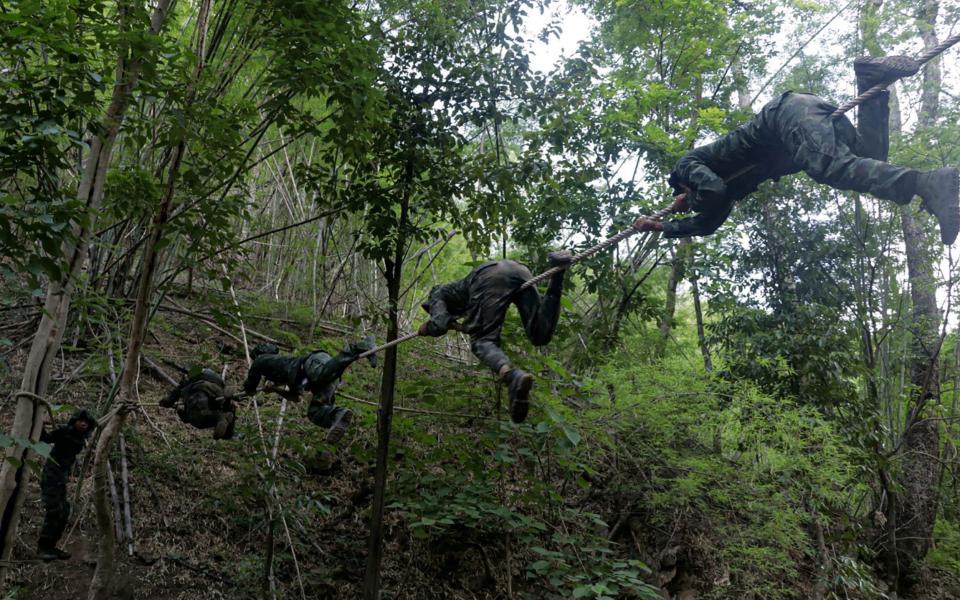
Mr Kyaw founded the Ayataw PDF, but decided to ask for training from guerrillas in Karen State, bordering Thailand, after his injuries.
“In the training, they teach how to use guns, how to make mines, grenades and guerilla warfare. I will go back to my city and then start doing what I should do,” he said.
Myanmar’s desperate youth are forming pockets of violent resistance in what is set to become a protracted civil conflict against the military regime that seized power four months ago and locked up leader Aung San Suu Kyi.
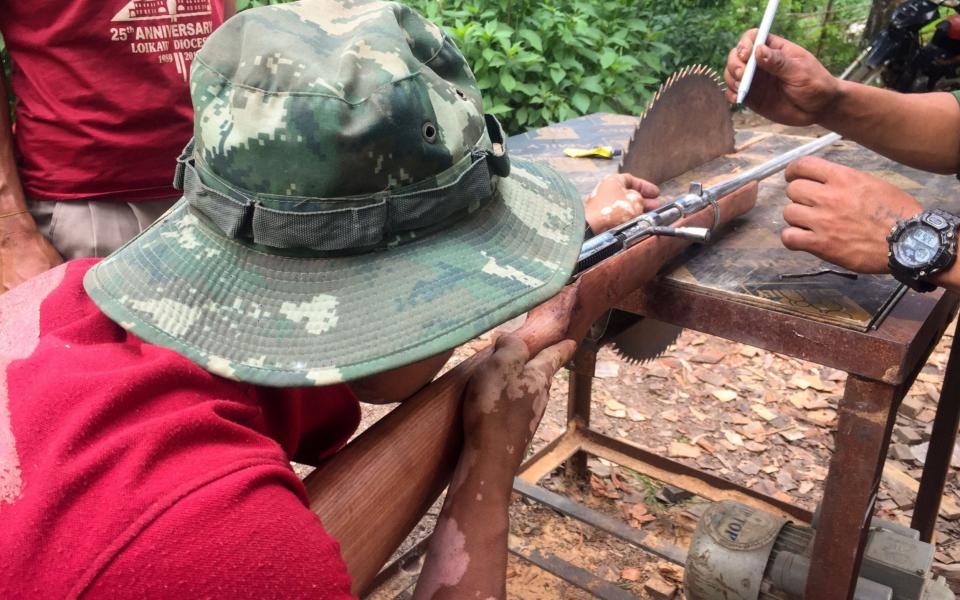
They are increasingly armed with crude hunting rifles and homemade explosives.
Some are joining urban "People’s Defence Forces (PDFs),” while reports suggest thousands are flocking to restive borderlands to seek training with ethnic militias who have waged independence wars for decades.
Under-equipped and inexperienced, they are vastly outmatched by Myanmar’s powerful military, but many say they have little choice but to pick up arms after peaceful demonstrations against the February coup were brutally crushed.
“I decided to join the training because this coup is the rare chance for us to eradicate the dictatorship from our country,” said Khu Ree Du, 25, who joined the Karenni Nationalities Defence Force (KNDF) in the country’s eastern Kayah State.
“If not, our generations will have to suffer the consequences. I won't let it happen. I will fight until we win over the regime.”
The KNDF was created on May 31 but had already drawn 320 men and 50 women, he said.
Khu Ree Du was given training by militias in an area controlled by the Karenni National Progressive Party.
The first three weeks focused on understanding Myanmar’s political landscape. “Then they trained us to obey orders. Then how to use and shoot guns and how to make homemade grenades and mines,” he said.
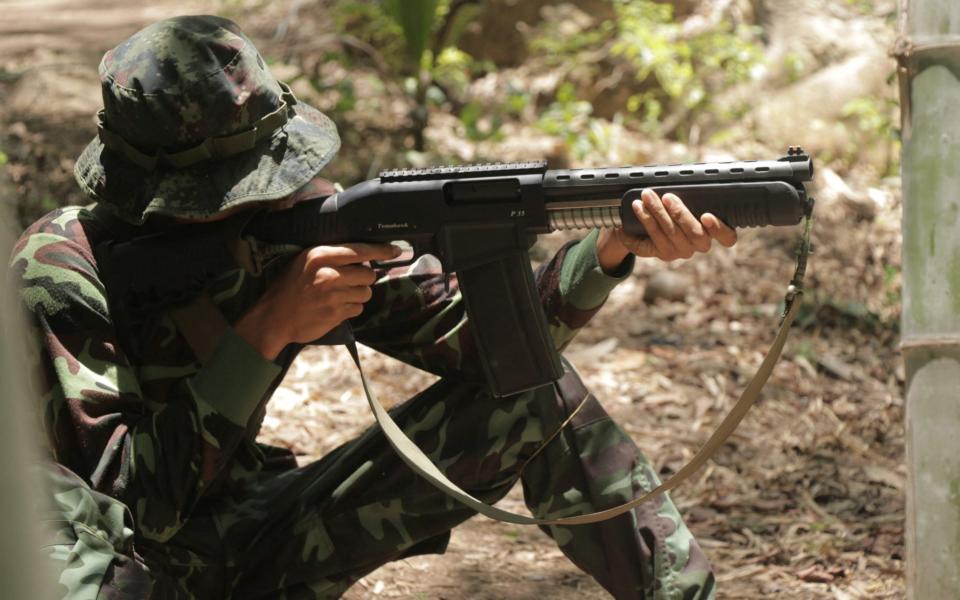
Clashes with the Myanmar army had since sprung up across Kayah State. Local people provided the KNDF with food, and the long-standing ethnic Karenni Army had offered some weapons, he said.
“But mainly we are using hunting rifles. The main problem we are facing now is to get weapons. The people in KNDF are local youth, farmers and activists but I believe that we will win in months, not in years.”
Close to 900 civilians have been killed and almost 6,000 arrested since the military takeover, according to the Assistance Association for Political Prisoners group. More than 70 children are among the dead – several shot in their homes by soldiers firing indiscriminately into residential areas.
“The people of Myanmar are being forced to defend themselves. It is directly proportional to the behaviour of the military junta,” Dr Sasa, the international envoy of the shadow civilian “National Unity Government (NUG),” told the Telegraph.

“Nobody is going to sit and wait in their home to be slaughtered like sheep.”
The NUG has called for the creation of a “Federal Army” to replace the military dictatorship with an inclusive and disciplined defence force that would draw in ethnic minorities and operate in line with international norms and laws, under civilian control.
David Eubank, who leads the Free Burma Rangers group, which for decades has provided humanitarian aid to ethnic border groups, said the idea of a single federal army was still a distant concept.
While ethnic armed groups had a “unity of purpose” to fight the junta, there was “no single command structure,” he said.
Speaking by satellite phone from the jungles of northern Karen State, Mr Eubank estimated about 3,000 young people had entered ethnic areas for training.
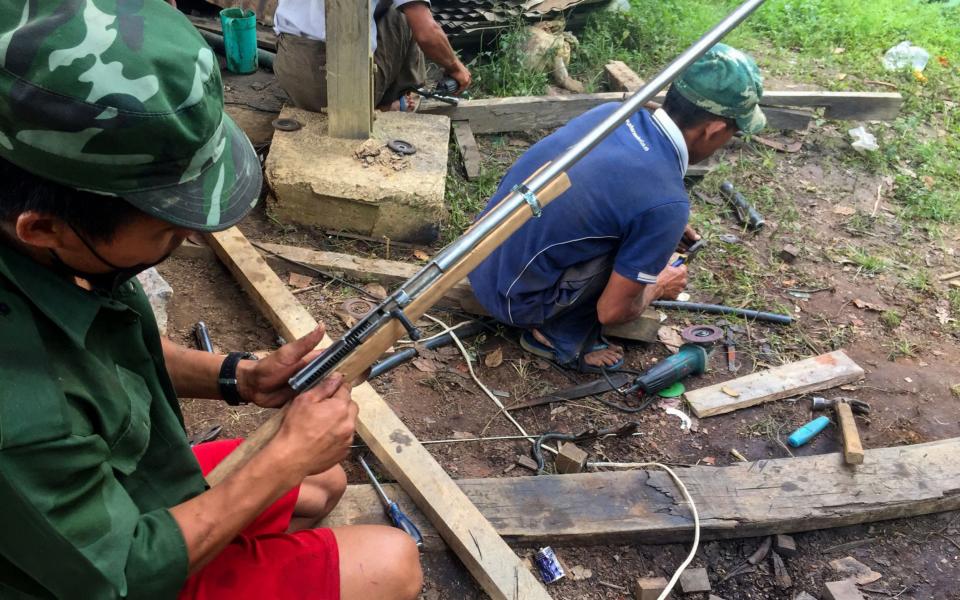
“They realise if they don’t stand up now, they are going to have nothing, they are going to be slaves,” he said.
But he stressed that only a small minority were receiving military instruction. Most were being taught medical and humanitarian aid skills, including tips on how to build networks and survive attacks.
Myanmar faces disaster, with an estimated 100,000 people displaced by military assaults and airstrikes in border regions now at risk of starvation and disease.
Even efforts to help them are fraught with danger. FBR volunteer, All Lo Sein, 23, lost his life last week while trying to rescue civilians under fire from soldiers in the Karenni town of Demoso. “He was smart and very brave..the guy you want on your side,” said Mr Eubank.
Avinash Paliwal, associate professor of International Relations at SOAS University of London, said divisions between ethnic armed forces and lack of military experience among young activists made the concept of a federal army unlikely.

“[It] is not going to happen in practice…but the idea as it has been advocated and conceived since the February 1 coup is to build something inclusive however difficult it might be,” he said.
For now, the country faced “protracted, decentralised violence,” he said.
“We are looking at a period where we are going back in time - where we are looking perhaps at a different character of warfare, a different character of resistance, but a very strong resistance nonetheless.”
Dr Sasa said the NUG would welcome future British training for this army. “It’s so important for us to have that support. Without that, how many more centuries will Myanmar live in this darkness?”

 Yahoo News
Yahoo News 